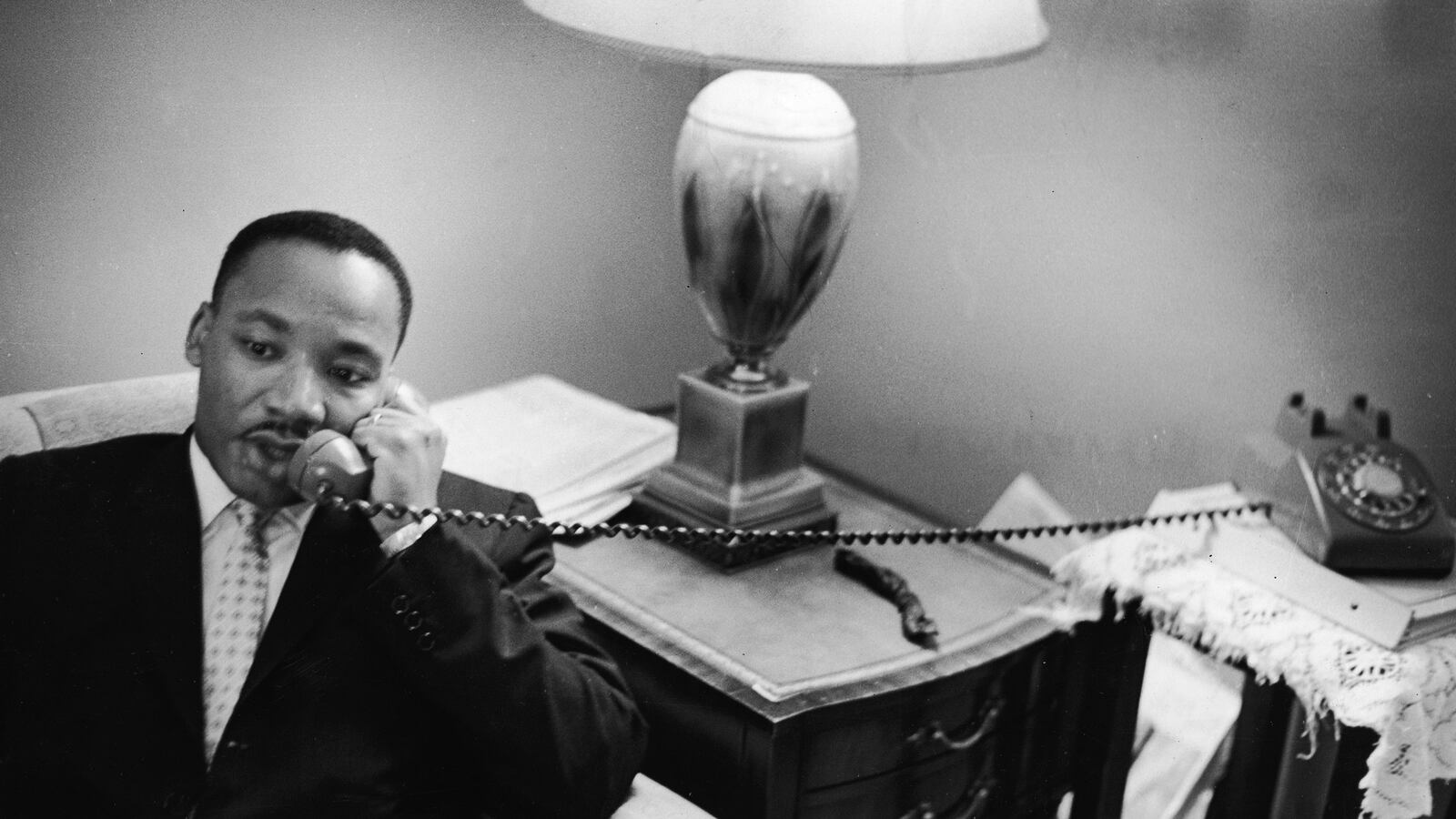The more we learn about the government these days, the less we can trust it. Forget about the simple incompetence that used to fire up libertarian critics of an expansive government—that’s a complaint that seems almost quaint given recent and ongoing revelations about official fraud and deception. It’s looking more and more like the government tends toward evil and mean-spiritedness, and it’s going to take real change to reverse eroding faith among citizens.
Though it was sent 50 long years ago, the FBI’s so-called suicide letter to Martin Luther King, Jr. is very much of a piece with today’s America, where fear of and anger toward the government casts a shadow over everything from web-surfing to starting a business. Historian Beverly Gage and The New York Times have just published an unredacted version of the anonymous November, 1964 letter almost certainly sent by the FBI to Martin Luther King, Jr. a few weeks before the civil rights leader was set to accept the Nobel Peace Prize.
The typo-laden note pretends to be from a black American repulsed by King’s “psychotic” sexuality and warns that he will be unmasked as a “filthy, abnormal animal” unless he kills himself. “King you are done,” reads the letter, drawing on surveillance and wiretaps approved by FBI director J. Edgar Hoover, Attorney General Robert Kennedy, and President Lyndon Johnson. “There is but one way out for you,” the note continues. “You better take it before your filthy fraudulent self is bared to the nation.”
In the 21st century, we worry less about the government ratting out our sex lives and more about it tapping our phones, reading our emails, secretly dispatching drones abroad, sending “desperate and dumb” mash notes to Iranian fascists, and generally lying about its true goals and actions. “Secret ‘Kill List’ Proves a Test of Obama’s Principles” announced the Times in 2012, clearly uncomfortable with the implications of its own expose (“Secret ‘Kill List’ Reveals Obama’s Principles” would have been more accurate).
So it’s fitting that the letter to King, one of the government’s most despicable acts of domestic surveillance, has only fully come to light in the age of Wikileaks, Edward Snowden, and what Barack Obama promised was going to be the “most transparent administration” in U.S. history.
Alas, when it comes to openness, Barack Obama neglected to mention that the most disturbing revelations would happen in spite of—not because of—his actions. We didn’t learn that the president’s former director of national intelligence, James Clapper, former CIA director Keith Alexander, and current CIA director John Brennan all lied to Congress because the administration suddenly decided to come clean.
And it’s not just unseemly cloak-and-dagger stuff in an age of terrorism that’s causing trust issues. MIT economist Jonathan Gruber, who helped create the Affordable Care Act, has rightfully come under fire for admitting that the “lack of transparency” in Obamacare was a political strategy designed to take advantage of “the stupidity of the American voter.” Nancy Pelosi, who was speaker of the House when Obamacare passed, has carried the deception further still, falsely saying that “I don’t know who [Gruber] is” and that “he didn’t help write our bill” —claims that were immediately revealed as false after about 10 seconds of Googling.
A new survey by The Atlantic of 50 “Silicon Valley Insiders”—“executives, innovators, and thinkers”--asks respondents to name “the biggest barrier to innovation in the United States.” The top three answers are “government regulation/bureaucracy” (20 percent), “immigration policies” (16 percent), and “education” (14 percent). Given the role it plays in setting immigration policy and controlling education at all levels through a mix of money and mandates, that means government takes the gold, silver, and bronze medals at making life harder.
It’s not just tech gazillionaires who feel this way. Gallup annually asks jes' plain folks, "Which of the following do you think is the biggest threat to the country in the future—big business, big labor, or big government?” Last December, a record-high 72 percent chose big government. That’s more than double the figure Gallup recorded when the FBI was listening to Martin Luther King’s heavy-breathing sessions. These days, says Pew Research, just 2 percent (!) of us trust the government “to just about always” do the right thing.
Fifty years ago—again, right around the time that the FBI was about to become the subject of a hagiographic hit TV show and trying to goad Martin Luther King, Jr. into killing himself—Richard Hofstadter was denouncing the “paranoid style in American politics,”. He lamented that, “American politics has often been an arena for angry minds.”
But today’s lack of trust and confidence in the government doesn’t seem all that angry. It’s more like we’re resigned to the fact that our rulers think little of us—that is, when they think of us at all. In gaining new knowledge about how people in power almost always behave, we are wiser and sadder and, one hopes, much less likely to put up with bullshit from the left, right, or center.
There’s a real opportunity to the politicians, the parties, and the causes that dare to embrace real transparency —about how legislation is being crafted, about our surveillance programs at home and abroad—as a core value and something other than a throwaway slogan. But as an unbroken thread of mendacity and mischief binds the present to the past, a future in which government can be trusted seems farther off than ever.






